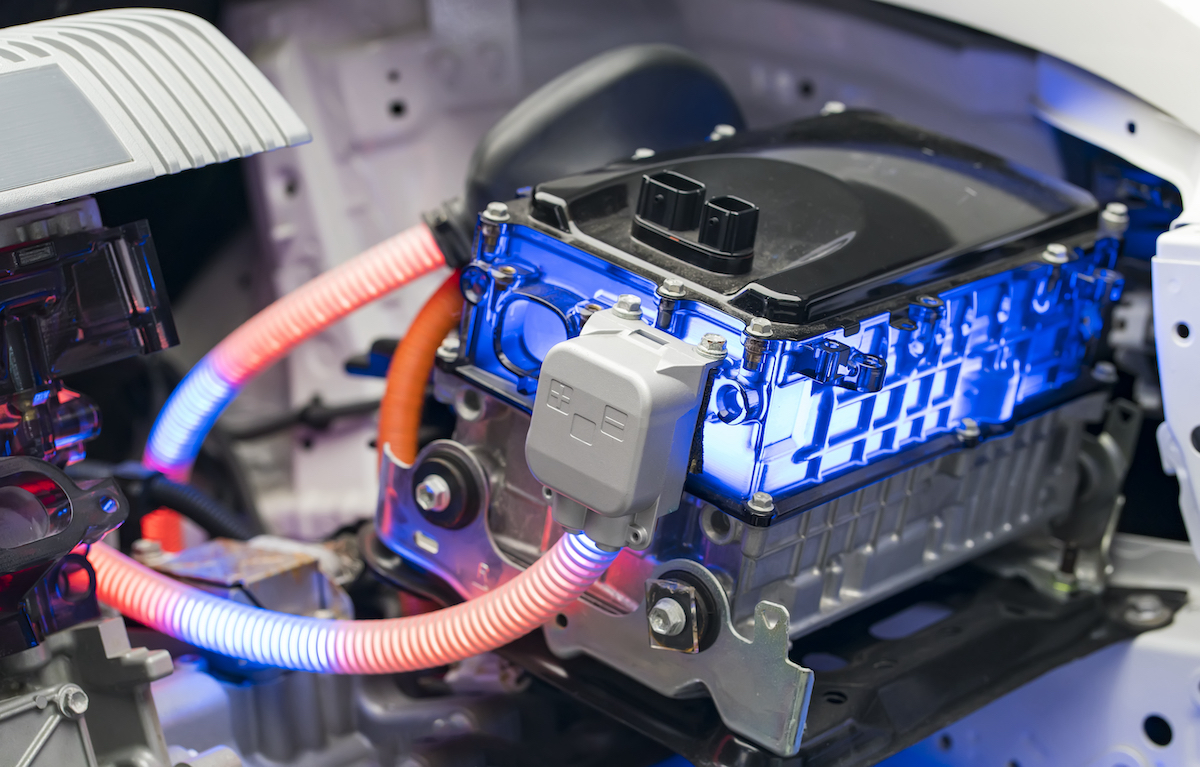How Powder Processing for Batteries is Critical to the EV Market

An estimated 14 million electric vehicles (EVs) will be sold worldwide in 2023. That’s a 35% sales growth rate compared to 2022, and an indication that EVs are well on their way to capturing the anticipated 18% of the overcall car market by year’s end.1
Earlier generation EVs were low-emission hybrids (HEVs) and plug-in hybrids (PHEVs) with gas-powered engines aided by electric motors. These models have largely given way to zero-emission battery electric vehicles (BEVs) powered solely by electric batteries. The evolution poses eco-friendly opportunities for automotive OEMs, provided their vehicles are reliable — which hinges on battery performance.
A toll processing partner with expertise in powder processing for batteries positions EV battery suppliers to help automotive OEMs power the future of gasoline-free vehicles.
Energy storage and the modern EV battery
Lithium-ion EV batteries store and release energy via chemical reactions in a series of battery cells. At the heart of the reactions are raw materials: lithium, cobalt, manganese, nickel, and graphite.
These minerals have capabilities in keeping with EV battery reliability and performance. Of particular note is how lithium and nickel improve energy density, essentially meaning the amount of power per volume. The more energy dense a battery is, the longer the EV driving range. Cobalt and manganese improve battery safety and stability, while graphite facilitates electrical conductivity.
Taken together, the quality and quantity of raw materials in EV batteries dictate reliability and performance. The required precision of the formulation can't be achieved using the minerals as extracted from the earth. They must be processed to uniform particulates so each battery acts exactly as anticipated. This critical step provides consistency across all vehicles within a particular model or class.
Powder processing for batteries
A toll processor is instrumental in powder processing for batteries because grinding helps manage particle size, shape, and surface area. Knowing which methods to apply converts the randomness of raw minerals into the consistent form that’s ideal for battery systems.
In some cases, the goal of raw mineral processing is particle reshaping instead of particle size reduction. For example, square particles may need to take on a more rounded form to best serve the battery system. Or, perhaps platelets need to be transformed into stacked material.
Whatever the goal, every particle — and every decision about a particle — ultimately impacts the EV battery. It's imperative that EV battery suppliers work with a toll processor that has a breadth of equipment available to offer nearly any process for battery technology, including:
- Wet milling to convert slurries to powders
- Hammer and jet milling for varying degrees of particle size reduction
- Splitting and classification of particles
- Zinc- and copper-free machinery for safe battery processing
But, processing equipment alone doesn’t qualify a toll processor for the art and science of power processing for batteries. A toll processor must understand the fundamentals of the raw materials to elicit the best quality and performance from each mineral.
Materials handling, testing, and scalability
As EV batteries become more popular, the scarcity and expense of the needed materials will likely increase proportionately. As such, yield is particularly important in toll processing. Working with a toll processor that's dedicated to maximizing yield is critical, as is their expertise in safely handling raw materials.
A toll processor’s depth of knowledge about the characteristics and idiosyncrasies of the materials themselves is invaluable for safe handling. For instance, lithium is a main element in EV batteries. It's also susceptible to flammability if exposed to high levels of moisture. Handling and testing this material requires very specific conditions, such as a dry box.
CPS is equipped with a dry box for just such scenarios. Safe handling is a top priority in using it with EV battery minerals. It also provides an opportunity for targeted analysis and small-scale pilot testing using low quantities of high-value materials. Dry boxes help control the atmosphere, devices, temperature, and other variables related to specific material processing. As such, toll processing engineers can then translate that information into large-scale product trials and/or full-scale production, which can save time and money.
Suppliers of EV batteries can benefit from toll processors who understand mineral behavior and can align conditions, testing, and scalability accordingly. Materials, yield, and costs are typically easier to manage, as are automotive OEM expectations about battery reliability and performance.
Powder processing for batteries and powder technology are sophisticated and essential parts of the future of EVs and the automotive industry as a whole. Learn more about what the future of gas-free vehicles looks like and a toll processing partner’s place in it in our guide Powder Processing for EV Batteries.
SOURCE
1Electrek, Global electric car sales' 'explosive growth' – in numbers, April 26, 2023


.png?width=100&height=110&name=CPS-Logo-rgb-no-callout%20(1).png)
